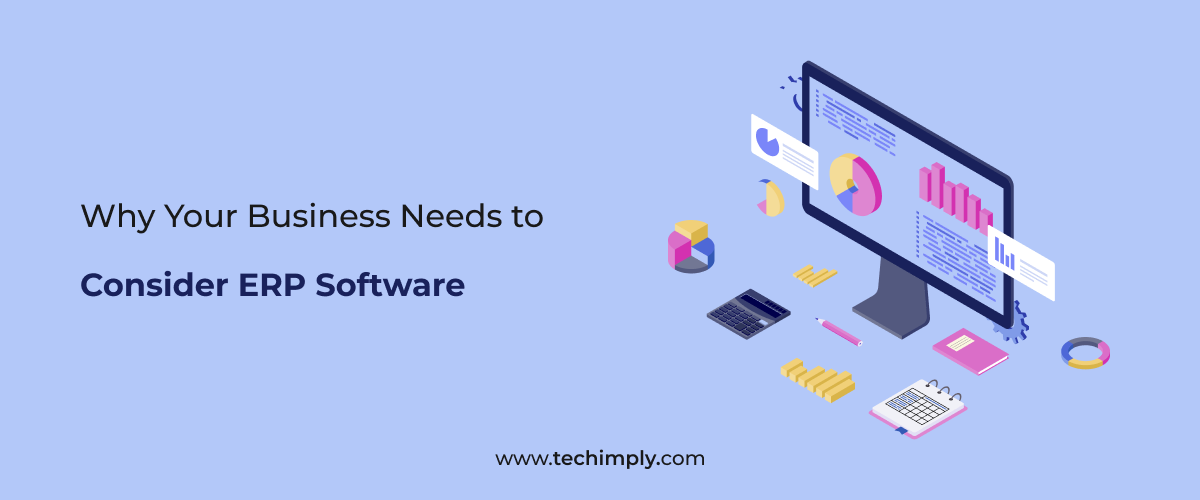Enterprise resource planning(ERP) is used by many industries verticals to manage their business functions utilizing centralized and integrated systems within a front-line.
In another word, it’s a business process management software that allows users to manage and integrate companies’ financial’s, operations, supply chain, commerce, reporting, and of course human resource activities. As we know, organizational needs may vary as they expand, their systems should keep up to date with individual needs.
Well, ERP is primarily used to work within the supply chain to keep tracking the set of actions parts of manufacturing and distributions utilized by several different industries including healthcare, construction, hospitality, non-profit groups.
ERP brings all the humongous processes to the table and together in one fluid system; not just by offerings data connectivity but also by helping their users to connect all data set for better insights to optimizes business processes across entire business verticals.
ERP simply offers a flexible deployment option, enhanced security and privacy, sustainability with low-code customization; hence, helps users to innovate at a rapid rate today while preparing a business for what’s world demands the most.
We curated few points to understand the essentiality of ERP for each of the businesses, and let’s dive into it:
Centralized business operations to communicate with one Another
ERP integration making a company’s disparate business systems actually communicate with another system as and when required. You need to understand your business’s current system environment and have many separate processes that aren’t on the same page.
You should check whether your process owners are facing difficulties while getting the required set of information, and when they need it. And if your answer is “yes” to these concerns, then this could be a good candidate for your ERP integration indeed.
Allow users to take control of the supply chain
ERP’s common use is supply chain management and in many cases, its lack of control over any visibility into the supply chain leads organizations to invest a handsome amount in ERP that follows secondary use cases.
As we all know supply chain management is really complicated while relying on multiple business management systems and business processes especially inventory management, accounts payable, customer relationship management, and vendor management to stay accurate. This offers real-time visibility of systems and processes that brings order to unruly supply chains operations.
Manage Company Inventory in an effective manner
Drill down a bit on the vital aspects of supply chain management’s inventory is essential. Multiple points of sale software, warehousing locations, and fulfillment locations are part of enterprises to often struggle to arrive at a single point-in-time version of truth especially with the inventory.
ERP solution helps in establishing and clarifying the truth of version controls while keeping everyone responsible for inventory management on the same page as earlier
Avoid Duplication in operation management
Avoiding duplication is probably inevitable in larger organizations, perhaps process owners alongside executives should have little patience for oblivious inefficiencies to make it more efficient.
We initially need to know, why one employee in one location has to run the same process as their employee to create the same work product? ERP system knitted everything together, while ERP gives entire teams visibility into the activities of their counterparts and allows their employees for a more efficient division to reduce instances of duplicative work.
Better work management
A larger organization without ERP software mostly depends on an in-house IT team to understand workarounds that replicate some of ERPs' integrative and collaborative functionalities.
In another word, to workaround fine with it your team must need to know ‘how to exactly operate’ whereas training new team members on them is especially time-consuming and prone to an error at the time where processes aren’t spelled out in the officials’ procedure.
We all know managing a team and creating action items takes considerable time- for the IT team could be spending while keeping an eye on a higher value work; this is where before getting into even more informal matter of employees making individual level requests of IT teams or personnel, an organization required these set of requests to quickly swamp the value-added equipped for their IT team.
In conclusion, at a time where your IT team can not handle their current workload due to lack of interoperability; this is high time to think on a serious note to implement EPR for your business needs.
Compliance and Risk management
If you’re willing to manage risk effectively across your enterprise to regulate compliance with various rules, implementing ERP will be ideal for taking a further step.
The only problem is you aren’t aware of how to do it either, with the vast yet growing trove of data to create and store; with the playing field changing with an eye blinks to update the forecasting models you use. Whereby, poor communication hold deficiencies, and not sure if enterprise’s management keep up with compliance front or not.
As Result, it appears with no effective operations ratio that bounds the risk tolerance as you’re not quite sure of what risks come along with your team while working on periodically. To resolve it, an ideal solution of ERP platform which keeps offering real-time visibilities to maintain transparent communication across the entire digital and physical footprint would be the first preference.
Bottom Line
Countess businesses face situations where they could be aware of solutions to rely on i.e ERP software though it again comes along with their own challenges and feasible features to focus on.
Well, a comprehensive demonstrated and deployed EPR software simply assists each of those businesses to address such concerns, and it’s indeed a fair point to make as if you are facing or experiencing any sustained basis; then your organization is the best candidate to acquire an ERP software.
Additionally, we’ve to understand deploying ERP software isn’t smooth as it requires a significant investment of financial resources to keep aligning with it. And it demands considerable human-resources timely manner investment as well. After successful deploying of ERP, it’s time to devote adequate resources to manage it thoroughly.



.jpg)
.png)


